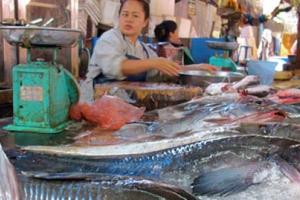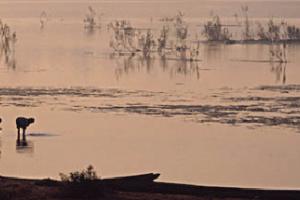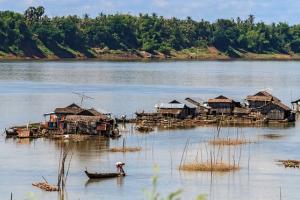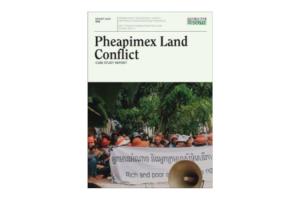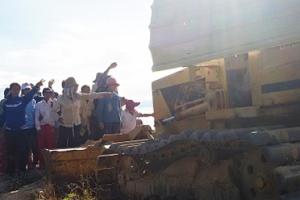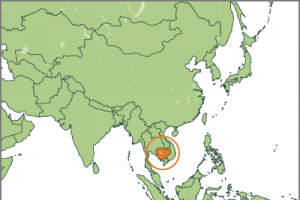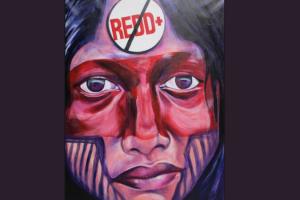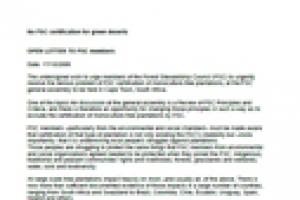In Thailand, Laos, Cambodia, Vietnam and Myanmar it remains common until today that the wife will be the one who ‘owns’ the land of the paddy or upland rice fields. . Women therefore can be the ones fully responsible for maintaining those resources for the next generations.
Cambodia
Bulletin articles
5 April 2014
Action alerts
1 November 2013
Letter sent by the Save the Mekong Coalition, to the Mekong countries Prime Ministers demanding the immediate cancellation of the Don Sahong Dam and moratorium on decisions over other mainstream projects for the overall benefit of people throughout the Mekong region. The Don Sahong Project will irreparably damage the Khone Falls and our mother river the Mekong.
Bulletin articles
31 October 2013
Bulletin articles
11 September 2013
The company promised to increase forest cover but they planted cassava; cassava is not a tree; a cassava plantation is not a forest.
(Resident from Ansar Chambor, Pursat, Cambodia)
Other information
11 September 2013
Solo disponible en inglés -
Agribusiness large-scale land acquisitions and human rights in Southeast Asia - Updates from Indonesia, Thailand, Philippines, Malaysia, Cambodia, Timor-Leste and Burma
Forest Peoples Programme, August 2013
By Marcus Colchester, Sophie Chao, Jonas Dalliner, Su Mei Toh, Chan Kiev, Indriaswati Saptaningrum, Mark Anthony Ramirez and Juan Pulhin
Ed: Sophie Chao, Forest Peoples Programme
Other information
11 September 2013
Agribusiness large-scale land acquisitions and human rights in Southeast Asia - Updates from Indonesia, Thailand, Philippines, Malaysia, Cambodia, Timor-Leste and Burma
Forest Peoples Programme, August 2013
By Marcus Colchester, Sophie Chao, Jonas Dalliner, Su Mei Toh, Chan Kiev, Indriaswati Saptaningrum, Mark Anthony Ramirez and Juan Pulhin
Ed: Sophie Chao, Forest Peoples Programme
Other information
30 May 2013
Vietnamese land grabs in Cambodia and Laos for rubber plantations: secrecy, destruction and violence
The characteristics of natural rubber make it a competitive material for industrial and medical uses, but products related to transportation, tyres and tyre products, are by far the largest single end market for natural rubber: they account for over 50% of consumption.
Bulletin articles
27 February 2013
A community petition on Avaaz.org calls for action against companies that subsidized by a European Union trade scheme, forcibly displace hundreds of thousands of Cambodian farmers from their land. These schemes are intended to benefit poor countries, but in Cambodia they have incentivized companies that steal people's land and make them poorer, while the benefits have flowed primarily to a business and political elite.
Other information
30 July 2012
The goal of the private investment firm Terra Global Capital is “to facilitate the market for land use carbon and other environmental credits (…) by providing technical expertise for the measurement and monetization of land use carbon credits and carbon finance through a dedicated investment fund.”
Other information
30 November 2011
In Cambodia, some 200,000 mostly Indigenous Kuy villagers are desperately trying to prevent the destruction of Prey Lang (“Our Forest), the last large primary forest of its kind on the Indochina peninsula. The Cambodian government has issued a patchwork of concessions to road builders, mining companies, and agro-industries. Bulldozers are slashing the forest to build new roads, rubber plantations, and mines.
Other information
1 August 2011
By the NGO Forum on Cambodia - Final Report.
Field Investigations in Koh Kong, Kampong Speu, Pursat, Kampong Chhnang, Mondolkiri, Prey Veng and Svay Rieng Provinces.
Download full document as pdf
